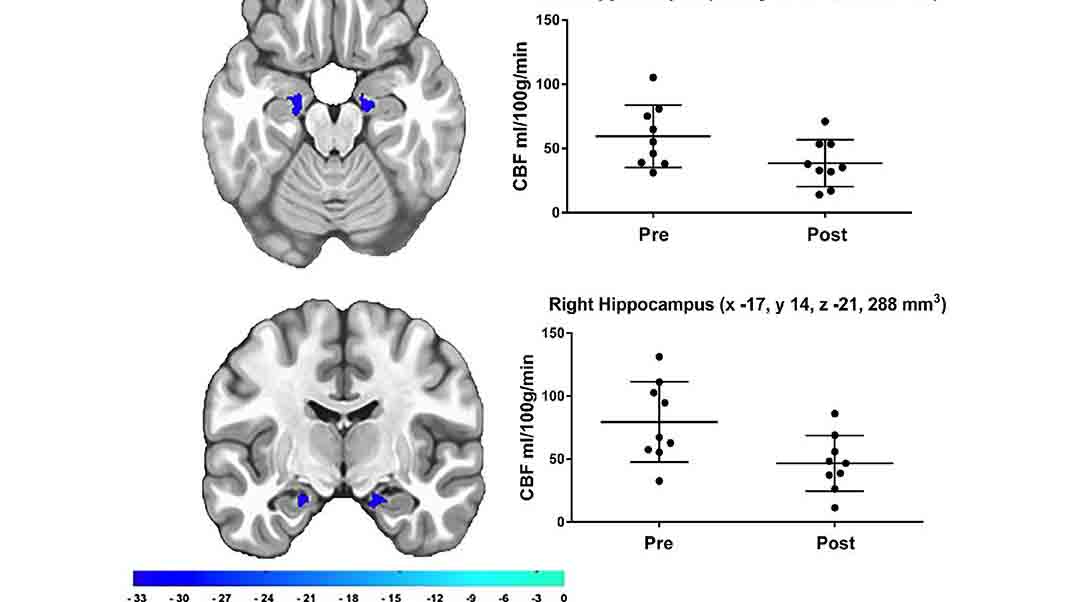Health
All Stories
American painter David Salle explains that to observe and appreciate art better, we need to refresh a basic skill we’ve all left in the dust: how to see.
▸
10 min
—
with
The longer you roll that dice, the higher the chance that a DNA mutation spawns a cancerous cell. The researchers on this study likened it to playing Russian roulette; sooner or later, there’s one in the chamber.
This drug combined with antibody therapies could prevent or even cure the neurodegenerative disorder.
Researchers found what all viruses have in common and created a therapy that should work on any kind, and will outsmart viral mutation.
New research by Australian scientists shows what exercise can make some people more intelligent and prevent dementia.
There is a debate among would-be parents and experts alike, as to whether it’s better to undergo prenatal genetic testing and know if there is a problem – or not. Here are the pros and cons.
A new study finds that even one season of football can affect a child’s brain. But soccer isn’t safe, either.
Your brain isn’t the only organ processing your day while you sleep. Dr. Emeran Mayer explains the circular processing of emotion and memory that goes on between your brain and your digestive system, and how the latter can “dream”.
▸
6 min
—
with
Many women are unable to have children due to age restrictions on IVF. Dr. Dominic Wilkinson, Director of Medical Ethics at the Oxford Uehiro Centre for Practical Ethics, challenges the 4 most flawed arguments.
We might feel fuller, but eating foods marketed for “fullness” won’t prevent us from consuming more calories, even when we’re not hungry.
How open are you to your partner having sex with other people? The answer may depend on your age.
A “magical probiotic mouthwash” may someday eradicate them, according to UC-San Diego researchers, whose research is leading them to a trigger in the microbiome.
Neuroscientists now think of the gut as a “second brain”; it independently controls your digestive processes and is in constant conversation with your main brain. What do they talk about? Depression, theorizes Dr Emeran Mayer.
▸
8 min
—
with
Dreams might be a whole lot sexier than we thought – but not because of their narrative content. Neurologist Patrick McNamara’s theory links the biological changes in our brains during sleep to human’s inherent desire to procreate.
Most of the foods we consume are created for the supermarket shelf, not for our health, says psychiatrist Drew Ramsey. But you can boost your brain function and overall well-being with this one very low-tech, analogue tool: your grocery list.
▸
10 min
—
with
An America where marijuana is legal could be right around the corner. It’s a cross-generational cause that is finally starting to have its day on the ballot.
A new study links reward-seeking to learning in teen brains.
131,000 people in the United States wait for an organ donation every single day. 10% of them will get one – unless we allow organ donations from drug deaths.
One controversial study claims to have found the edge of the human lifespan.
Danger is at hand, and you may have voted for it. Science educator Bill Nye weaves a passionate argument for the importance of science literacy in a country’s elected leaders.
▸
7 min
—
with
We never forget a face, but that’s because humans are evolutionary predisposed.
A new study shows that cerebral blood flow within the left and right hippocampus significantly decreases after just 10 days of without exercise.
The study published in the American Journal of Clinical Nutrition seems to indicate that eating regular-fat cheese has no effect on our bad cholesterol (LDL), but does have a positive effect on our good cholesterol (HDL).
A study, published in the Journal of the American Medical Association (JAMA), found that fitness trackers don’t help you lose weight. Instead, they may impede your efforts.
Most of us have heard of the double helix. But quadruple helix DNA?
60% of pain patients find that tolerance buildup significantly impedes their treatment over time.
This discovery could lead to a whole new class of drugs for psychiatric disorders.
Which came first, monogamy or the social contract? Evolutionary psychologists and biologists think the latter.
An expansive new study shows that marijuana use by Americans has increased significantly since 2002.
The way to a healthy mind is through the stomach, according to psychiatrist Drew Ramsey. The right foods can decrease your risk of depression by 50%, and treat clinical mental disorders.
▸
4 min
—
with





























